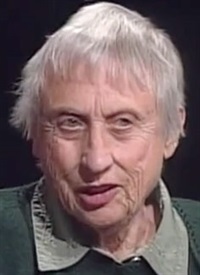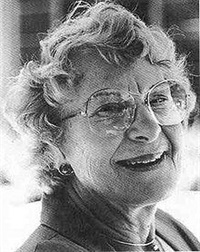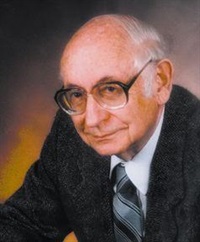EP85 Supervision Panel 02 - Mary M. Goulding, MSW; Ronald D. Laing, MD; Virginia M. Satir, ACSW; Joseph Wolpe, MD
- Average Rating:
- Not yet rated
- Topic Areas:
- Supervision Panels | Psychotherapy | Trauma
- Categories:
- Evolution of Psychotherapy | Evolution of Psychotherapy 1985 | Pioneers in Couples and Family Therapy
- Faculty:
- Mary Goulding, MSW | Ronald Laing, MD | Virginia Satir, MA, ACSW | Joseph Wolpe, M.D.
- Duration:
- 51 Minutes
- Format:
- Audio Only
- Original Program Date:
- Dec 12, 1985
- License:
- Never Expires.
Description
Description: Distinguished therapists analyze complex therapeutic cases, offering nuanced strategies for addressing challenging client scenarios involving adolescent stealing, family dynamics, depression, PTSD, and relationship patterns. The panel provides insights into contract-based therapy, family systems approaches, and client-centered interventions across diverse psychological challenges.
Moderated by Harold Arkowitz, PhD.
Educational Objectives:
- To learn philosophies of various practitioners and theorists.
*Sessions may be edited for content and to preserve confidentiality*
Credits
Handouts
| Timestamped Transcript (1 MB) | 26 Pages | Available after Purchase |
| Ericksonian Learning Snapshot (281.2 KB) | 2 Pages | Available after Purchase |
Faculty

Mary Goulding, MSW Related Seminars and Products
Mary Goulding, MSW, is one of the leading exponents of Transactional Analysis. Along with her husband Robert Goulding, she developed an approach called Redecision therapy which synthesizes Transactional Analysis and Gestalt. Together they founded the Western Institute for Group and Family Therapy in Watsonville, California, and co-authored two professional books about their approach. There is also an edited volume about the Redecision model. Mary has served as a member of the Board of Trustees of the International Transactional Analysis Association and is a Teaching Member of that organization. Her M.S.W. was granted in 1960 from the School of Social Welfare, University of California, Berkeley.

Ronald Laing, MD Related Seminars and Products
Ronald David Laing, usually cited as R. D. Laing, was a Scottish psychiatrist who wrote extensively on mental illness – in particular, the experience of psychosis. R.D. received his M.D. from Glasgow University. Laing's name comes to mind when one thinks of practitioners who have been most effective at challenging prevailing medical thinking on schizophrenia. He has practices psychotherapy for more than 35 years and has authored 11 volumes.
Laing teaches and practices in London. Formerly he served as Chairman of The Philadelphia Association; was associated with the Tavistock Clinic; and was a Fellow of The Foundations Fund for Research in Psychiatry.

Virginia Satir, MA, ACSW Related Seminars and Products
For almost forty years, Virginia Satir has practiced and taught psychotherapy. One of the founders of family therapy, she has co-authored four books and authored five. Additionally, there are a number of books about her approach. She was recipient of the Distinguished Family Therapy Award from the American Association of Marriage and Family Therapy.
Satir wass the co-founder of the Mental Research Institute. She wass past president of the Association of Humanistic Psychology and has a number of honorary doctorates. Her master's degree was granted in 1948 from the University of Chicago School of Social Service Administration.

Joseph Wolpe, M.D. Related Seminars and Products
Joseph Wolpe, MD, was a South African psychiatrist, one of the most influential figures in Behavior Therapy. Wolpe grew up in South Africa, attending Parktown Boys' High School. Joseph received his M.D. in 1948 from the University of Whitatersrand in Johannesburg, South Africa. He was Emeritus Professor fo Psychiatry and Former Director of Behavior Therapy Unity at Temple University Medical School. He was Professor of Psychiatry at the Medical College of Pennsylvania. One of the leading practitioners of behavior therapy, he has authored three books and co-edited two, and has more than 200 professional publications. He cofounded the Journal of Behavior Therapy and Experimental Psychiatry. He is receipient of the Distinguished Scientific Award for the Applications of Psychology from the American Psychological Association.


